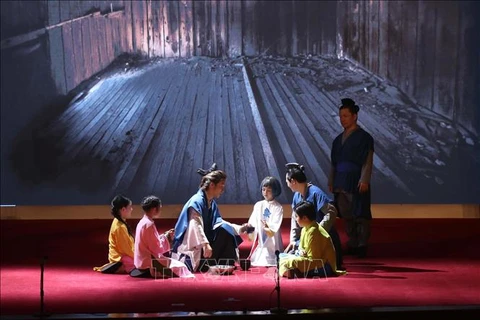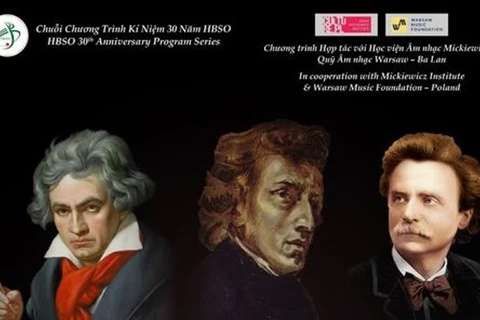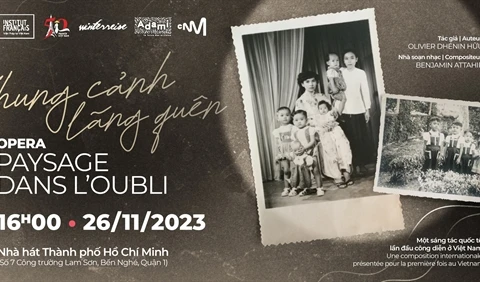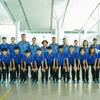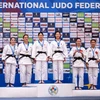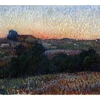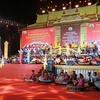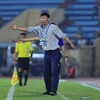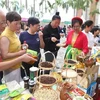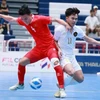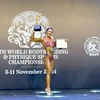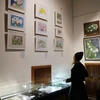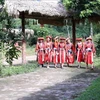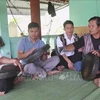Hanoi (VNA) –With the purpose of providing more knowledge about opera history to the public and artists in Vietnam, Italian music professor Gianni Kriscak and two Vietnamese lecturers and artists Nguyen Thi Hien (Hien Nguyen Soprano) and Trinh Thi Oanh introduced a book series named "History of Italian Opera" in the Vietnamese language.
The art form, originating in Italy in the sixteenth century, occurred in Vietnam three centuries later and has today become a part of Vietnamese music.
On the occasion of his visit to Vietnam to debut the book series, the professor talked to the VietnamPlus e-newspaper on his desire to have more and more people better understand the art of opera.
Reporter: Why did you start working on this book series and why did you choose Vietnam to publish the book?
Professor Gianni Kriscak: In my experience, many people involved in the arts, whether they are singers, conductors or musical theatre directors, do not clearly understand the origin of opera. Especially in Vietnam, monographs on opera are very rare.
 Italian music professor Gianni Kriscak and artist Hien Nguyen Soprano in the ceremony to introduce the book series (Photo: VietnamPlus)
Italian music professor Gianni Kriscak and artist Hien Nguyen Soprano in the ceremony to introduce the book series (Photo: VietnamPlus) In 2016, I had an opportunity to go to Vietnam to teach. I met Hien Nguyen Soprano at the Vietnam National Academy of Music. I noticed that she had a great interest in European culture, especially opera and Italian culture. And at the time, I could talk to her in English and Italian.
Two years ago, Hien Nguyen shared with me her idea of writing a book about opera, focusing on the early stages of the art form.
Opera was born in Italy, not in Germany, France or Russia. I think this art has its own foundation, and historical and social contexts. Hien Nguyen Soprano and I have the same desire to spread that knowledge to everyone. Therefore, we decided to write this book in Vietnam. Hien Nguyen invited music lecturer Trinh Thi Oanh to join this project. Hien Nguyen was in charge of translating it into the Vietnamese language.
Reporter: How do you choose to tell stories to bring this academic art closer to readers?
Professor Gianni Kriscak: With the first volume of 194 pages, we discuss the exciting features of opera.
I tried to give in brief but informative explanations about what happened in society, about political developments, about the role of theatres in Italian society. I was not greedy to list too many names or details because it will make the book heavy and complicated for Vietnamese readers (and also in Italy). I tried to mention the most important and interesting moments in the first period of opera. This is when opera's early form was "liturgical drama," which played the role of conveying religious ideas. At that time, women were not allowed on stage, all female roles were played by men. Readers will also understand more about the different forms of opera and operatic voices.
 (From left to right) Authors of the book series: Artist Hien Nguyen Soprano, professor Gianni Kriscak and lecturer Trinh Thi Oanh. (Photo: VietnamPlus)
(From left to right) Authors of the book series: Artist Hien Nguyen Soprano, professor Gianni Kriscak and lecturer Trinh Thi Oanh. (Photo: VietnamPlus) We plan to divide the book into two volumes. The first volume presents the history of opera from the dawn (16th century) to about the mid-18th century, the least known period not only in Vietnam but also in the world. The second volume will discuss the period after that until the moment of setback.
Reporter: As an artist, conductor and music professor with extensive experience, how do you feel about Vietnamese opera?
Professor Gianni Kriscak: During our years of research, we have appreciated the dedication and enthusiasm of Vietnamese music critics and artists in studying opera. However, this requires support with a vast knowledge of opera history. We hope that with our book, the authors can bring Vietnamese musicians and the public who are passionate about opera closer to the spirit of Italy.
 Music professor Gianni Kriscak (left) practices for a performance on March 1 evening in Hanoi. (Photo: VietnamPlus)
Music professor Gianni Kriscak (left) practices for a performance on March 1 evening in Hanoi. (Photo: VietnamPlus) There is a fact that many young Vietnamese people today are indifferent to opera and other academic arts. This also happens in Italy so I understand very well.
I hope this book with very basic knowledge will be popularised in society and general education, making opera closer to the Vietnamese audience.
Reporter: On this occasion, what plans do you have to learn more about Vietnamese opera and music?
Professor Gianni Kriscak: On the evening of March 1, we will have a concert at the Vietnam National Academy of Music. I will play piano with soprano Hien Nguyen and bass-baritone artist Quoc Dat. We will perform classical and semi-classical music from Vietnam and the world, including "Ru con mua Dong” (Winter Lullaby) (Dang Huu Phuc) and "Cung dan mua Xuan” (Spring Arcade) (Cao Viet Bach). The process of practicing with artists has given me the opportunity to understand more about Vietnamese music. However, this business trip is too short. I will return to learn more about Vietnamese opera.
Reporter: Thank you very much./.

